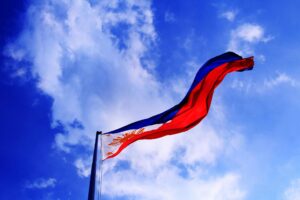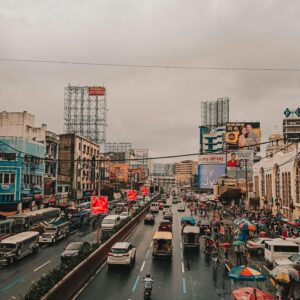The Philippines Faces a Dire Freshwater Shortage
 The Philippines, a nation comprising more than 7,000 islands, is facing a severe freshwater shortage that threatens its sustainable development and the health of its citizens. Recent reports indicate that approximately 11 million Filipino families are grappling with limited access to clean water. This crisis is exacerbated by the dry season and the El Niño phenomenon, which contribute to higher temperatures and drying up of water sources.
The Philippines, a nation comprising more than 7,000 islands, is facing a severe freshwater shortage that threatens its sustainable development and the health of its citizens. Recent reports indicate that approximately 11 million Filipino families are grappling with limited access to clean water. This crisis is exacerbated by the dry season and the El Niño phenomenon, which contribute to higher temperatures and drying up of water sources.
The scarcity of water has led to serious health consequences, as people are forced to rely on unsafe drinking water sources. This situation is dire in rural communities where access to improved water sources is still a distant reality for many. The lack of clean water exposes these communities to waterborne diseases and hampers basic hygiene practices, essential for preventing infections.
The water crisis in the Philippines is not a new issue; it has been a persistent problem due to factors such as rapid population growth (it is the 13th most populous country in the world), inadequate governance, and extreme climate conditions. The government has faced criticism for insufficient water management practices, which have failed to prevent illegal tapping activities and pipe leaks that further contaminate the water supply.
President Ferdinand Marcos Jr. has acknowledged the crisis, emphasizing the need for modern water management technologies and improved filtration systems to ensure everyone has access to potable water. The National Water Resources Board has also highlighted the reliance on “unprotected” deep wells, springs, rivers, lakes, and rainwater as primary sources for many families, which is not a sustainable solution.
As the nation confronts this challenge, it is crucial for both individuals and the government to take

action. Conservation, recycling of water, and ensuring the safety of drinking water are steps that individuals can take to mitigate the impact of this crisis. On a larger scale, the government must provide long-term solutions to offer safe and reliable drinking water sources to its people.
The current situation in the Philippines serves as a stark reminder of the importance of water conservation and the need for collective efforts to address water scarcity. It is a call to action for all stakeholders to come together and work towards ensuring that no one is left behind in having access to one of life’s most essential resources: clean water.
